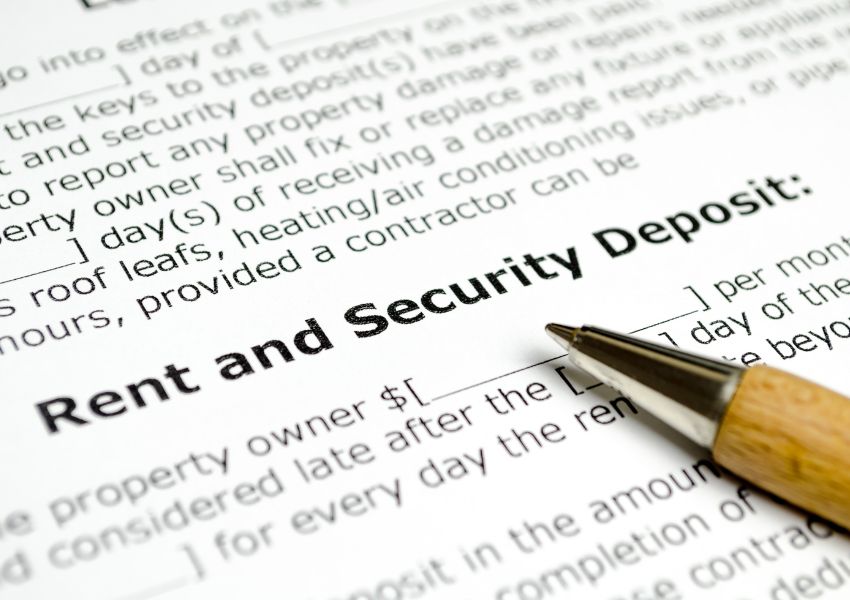Florida Rental Laws - An Overview of Landlord Tenant Rights in St. Augustine
In Florida, like in many states across the U.S., landlord-tenant relationships are governed by specific laws designed to protect the rights of both parties involved. Understanding these laws is crucial for rental housing providers to ensure compliance and smooth property management.
This article aims to provide rental housing providers with a comprehensive overview of the landlord-tenant laws in Florida, covering essential disclosures, rights, responsibilities, and more. If a rental housing provider fails to adhere to these laws, they may be held liable.
Required Landlord Disclosures in Florida
Under Florida law, rental housing providers are required to disclose certain information to tenants. These disclosures include:
- Lead-Based Paint: For properties built before 1978, federal law requires rental housing providers to inform renters about lead-based paint hazards. This includes providing a pamphlet on lead-based paint safety and any known information about the presence of lead-based paint in the dwelling unit.
- Authorized Authorities: The identities and addresses of all property owners, as well as any middlemen permitted to act on their behalf, must be disclosed by landlords. Renters will be assured of who is in charge of the unit thanks to this.
- Security Deposit Holdings: It is mandatory for rental housing providers who rent out five or more rental units to notify renters of the location of their security deposit and whether or not they are eligible for interest. This facilitates renters' understanding of how their security deposit is handled and progresses.

- Radon Gas: Landlords must provide tenants with information regarding radon gas, whether or not it is present in or near the rental unit. This disclosure must include state-provided language explaining the nature and potential hazards of radon gas .
Florida Tenant Rights & Responsibilities
Under Florida law, tenants are granted several rights that a Florida residential landlord shall respect throughout the rental period, regardless of the rental agreement terms. These key rights include:
- Right to Livable Housing: Landlords must ensure rental properties are maintained in a livable condition.
- Right to Privacy: Tenants are entitled to privacy in their rented space or property. Except in emergencies, landlords must provide adequate notice before entering the unit or property.
- Right to Quiet Enjoyment: Tenants are entitled to a peaceful rental experience without undue interference from landlords.
- Right to Repairs: Landlords are responsible for making necessary repairs to keep the unit habitable, as required by Florida's landlord-tenant statutes.
- Right to Non-Discrimination and Fair Housing: It is illegal for landlords to treat tenants unfairly on the basis of protected traits like race, color, national origin, religion, sex, family status, or disability. If a landlord fails to do so, it could mean legal trouble.
Tenants in Florida also have certain responsibilities after moving in. Landlords can expect tenants to:
- Pay Rent: Tenants are required to pay rent in accordance with the conditions of the rental agreement.
- Maintain Cleanliness: Tenants are responsible for keeping the rental unit clean and sanitary.

- Report Maintenance Issues: Tenants should promptly inform landlords of any maintenance or repair issues that arise.
- Follow Lease Terms: Tenants must adhere to the rental agreement, including paying rent, rules on subletting, paying security deposit, pet ownership, and property use.
Florida Landlord Rights & Responsibilities
Landlords in Florida have specific rights protected by law. These rights include:
- Right to Receive Rent: Landlords are entitled to rent payments and future rent payment periods from tenants as specified in the lease agreement .
- Right to Screen Tenants: Landlords can screen potential tenants based on credit history, rental history, and income level for rent, as long as they comply with fair housing regulations.
- Right to Enter the Property: Landlords may access the dwelling unit for maintenance, inspections, or showing the unit to potential tenants or buyers, with appropriate notice, typically 24 hours in advance, except in emergencies.
- Right to Evict for Nonpayment or Lease Violations: Landlords can evict tenants who fail to pay rent or violate lease terms from the premises, following the legal eviction process in Florida.
Florida landlords also have several responsibilities to ensure a safe and habitable environment for tenants. These responsibilities include:
- Maintaining Habitability: It is the responsibility of landlords to maintain livable rental properties by adhering to construction and safety requirements, supplying basic utilities like heat and water, and doing required repairs.

- Providing Safe Conditions: To protect the safety of their tenants and guests, landlords must take care of risks including mold, lead paint, and structural flaws.
- Respecting Tenant Privacy: Except in cases of emergency or with the tenant's permission, landlords are required to protect tenant privacy by giving the tenant written notice before visiting the dwelling unit.
- Enforcing Lease Terms: Terms of the lease, including maintenance obligations, rent obligations, and behavioral guidelines for tenants, must be upheld by the landlord.
- Handling Security Deposits Properly: Landlords must manage security deposits according to Florida law, including providing written notice to tenants regarding the terms for withholding any portion of the deposit for damages beyond normal wear and tear. All landlords must comply with the security deposit laws.
Overview of Landlord-Tenant Laws in Florida
Florida's landlord-tenant laws govern the rights and responsibilities of both landlords and tenants in rental agreements. Key aspects of these laws include:
- Lease Agreements: An oral or written rental agreement are both acceptable, however in order to avoid misunderstandings, formal agreements are advised. The lease should specify rent amounts, dates of payment, conditions pertaining to security deposits, and guidelines for unit upkeep and use of the premises.
- Tenant Privacy: Except in cases of emergency, landlords are required to give a sufficient amount of notice—typically 24 hours—before visiting the rented unit. Tenants are entitled to quiet enjoyment of their dwelling unit and seclusion on the premises.

- Rent Payments: On the day indicated in the lease, rent is due. Unless specified otherwise in the lease, landlords are not obligated to provide a grace period.
- Termination of Tenancy: When giving enough notice, both tenants and landlords are able to end a lease agreement or rental agreement. The length of notice varies according to the tenancy type and particular lease terms when they terminate the rental agreement.
- Retaliation: Tenants who exercise their legal rights during their tenancy—such as asking for repairs or reporting violations of housing and health codes—cannot face retaliation from their landlords.
Conclusion
It is imperative for Florida landlords to keep a strong tenant-landlord relationship, which entails comprehending and adhering to state legislation that are intended to safeguard both parties. It can be difficult to stay current with Florida regulations and legal changes, but doing so is necessary for efficient property management.
To find out more about landlord-tenant legislation and how we can help you maintain compliance, get in touch with Ocean Realty & Property Management today.
Disclaimer: Please note that the information provided in this blog is intended for general guidance and should not be considered as a replacement for professional legal advice. It is important to be aware that laws pertaining to property management may change, rendering this information outdated by the time you read it.